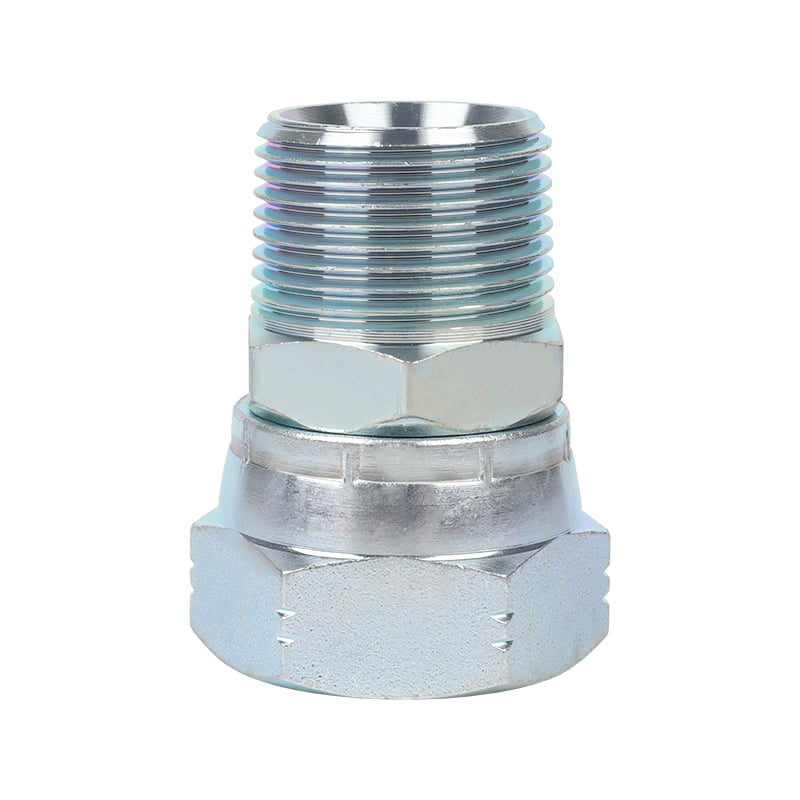What are the best practices for installing and tightening hydraulic adapters?
Author:admin Date:2023-05-24
When installing and tightening hydraulic adapters, it's important to follow best practices to ensure proper sealing, prevent leaks, and maintain the integrity of the hydraulic system. Here are some best practices for installing and tightening hydraulic adapters:
1.Cleanliness: Ensure that both the hydraulic adapter and the mating surfaces on the hydraulic components are clean and free from dirt, debris, and contaminants. Use a lint-free cloth and appropriate cleaning agents to remove any residues that could affect the sealing.
2.Correct Thread Type and Size: Verify that the hydraulic adapter has the correct thread type and size that matches the mating component. Mismatched threads can result in leaks or damage to the adapter or the hydraulic component.
3.Use Proper Sealing Method: Determine the appropriate sealing method based on the hydraulic system requirements. This can include the use of O-rings, crush washers, or thread sealants. Follow the manufacturer's guidelines or consult hydraulic experts to ensure the correct sealing method is applied.
4.Proper Torque: Use a calibrated torque wrench to tighten the hydraulic adapter to the specified torque value. Over-tightening can damage the adapter or the mating component, while under-tightening can result in leaks. Refer to manufacturer recommendations or industry standards for the appropriate torque values.
5.Avoid Excessive Force: Do not use excessive force or apply sudden impacts when tightening hydraulic adapters. This can lead to deformation or damage to the adapter, threads, or mating components. Apply a smooth and controlled tightening force.
6.Proper Wrenches and Tools: Use the correct size and type of wrenches or tools to tighten the hydraulic adapter. This helps to ensure a secure and even tightening without damaging the adapter or surrounding components.
7.Inspection: After installation, visually inspect the hydraulic adapter and the surrounding area for any signs of leaks, damage, or misalignment. If leaks or issues are detected, address them promptly to prevent further problems.
8.Follow Manufacturer Guidelines: Always follow the specific instructions and guidelines provided by the manufacturer for the particular hydraulic adapter being used. They may have specific recommendations for installation and tightening procedures.
It is essential to consult hydraulic system experts or refer to manufacturer guidelines to ensure proper installation and tightening of hydraulic adapters, as specific procedures may vary depending on the type of adapter and the hydraulic system requirements.
JIC MALE 74° CONE / JIC FEMALE 74° SEAT 2J

Stainless steel hydraulic adapters are fittings used to connect hydraulic lines or hoses in a hydraulic system. They are made of stainless steel, which is a type of corrosion-resistant steel that contains at least 10.5% chromium. This makes them suitable for use in environments where corrosion may be a concern, such as in marine or offshore applications, or in areas with high humidity.
There are many types of stainless steel hydraulic adapters available, including male and female connectors, elbow and tee fittings, and bulkhead fittings. They are available in a variety of sizes and configurations to meet the specific needs of different hydraulic systems.
Stainless steel hydraulic adapters are strong and durable, and can withstand high pressure and temperature changes. They are also resistant to corrosion, making them a good choice for use in harsh environments. However, they can be more expensive than other types of hydraulic adapters, such as those made of brass or steel.
It is important to choose the right stainless steel hydraulic adapter for your system, as using the wrong type of adapter can lead to leakage, reduced flow, or other problems. It is also important to follow proper installation and maintenance procedures to ensure that the adapters function properly and do not fail.


 English
English Deutsch
Deutsch











